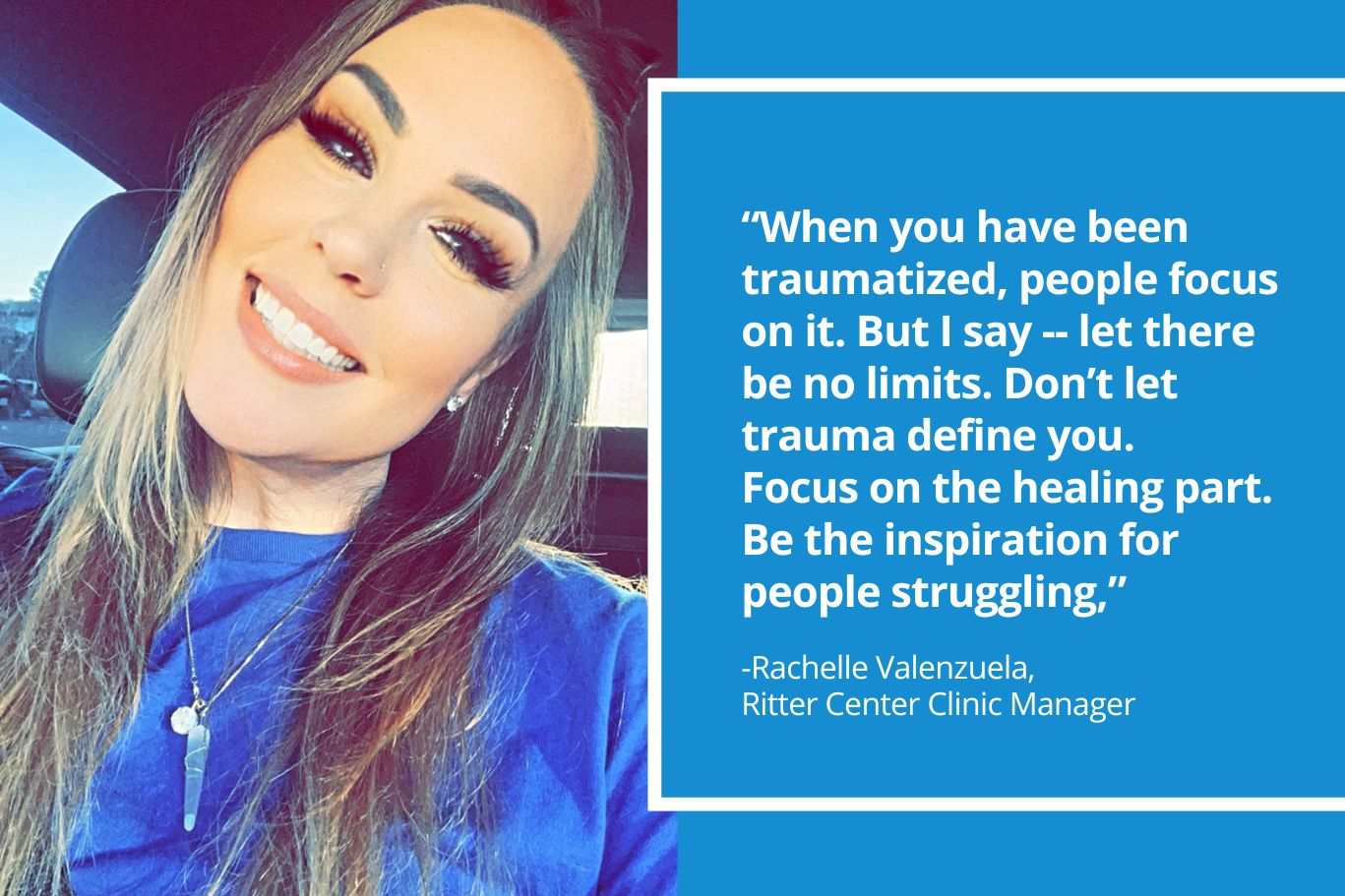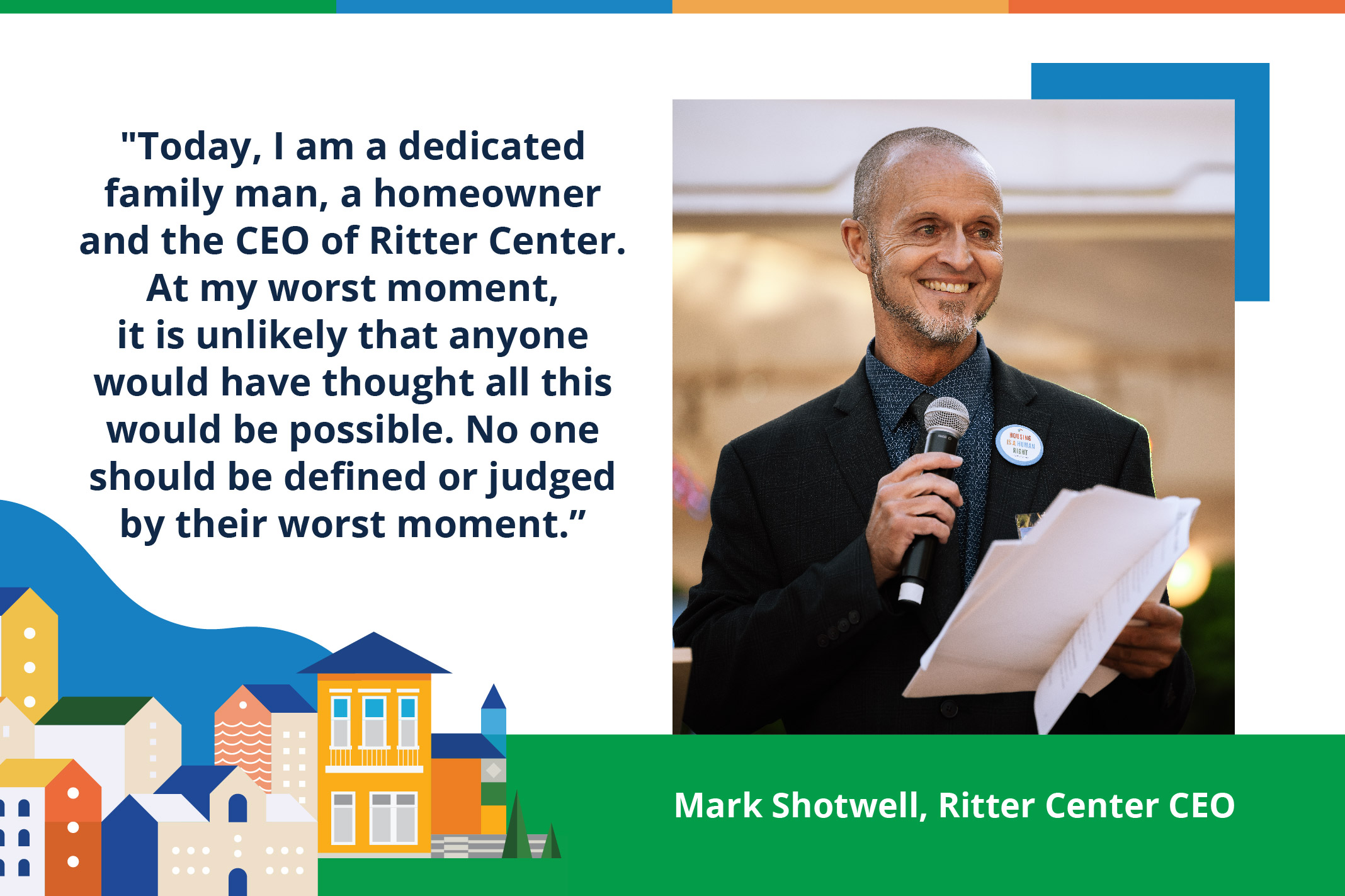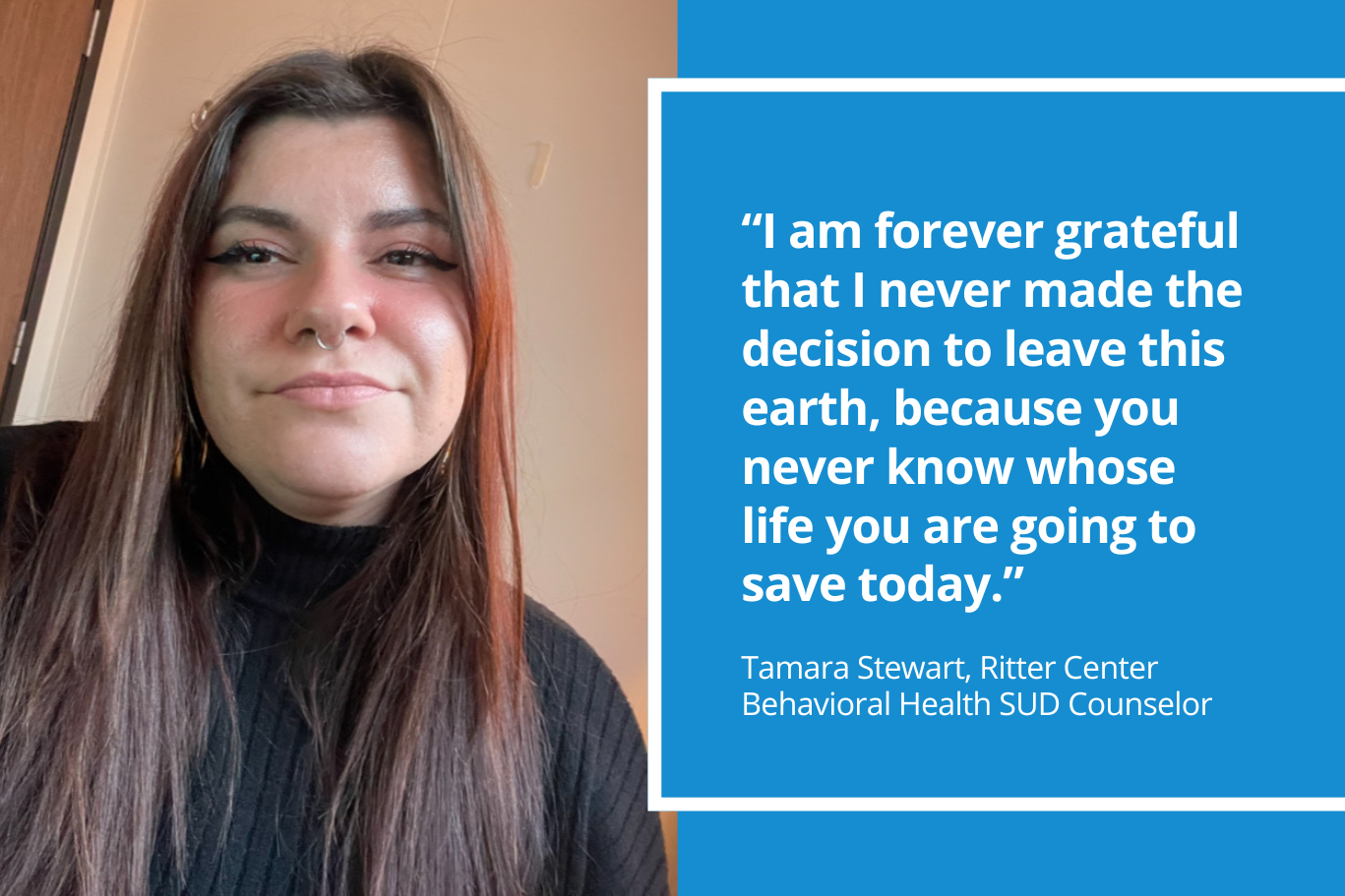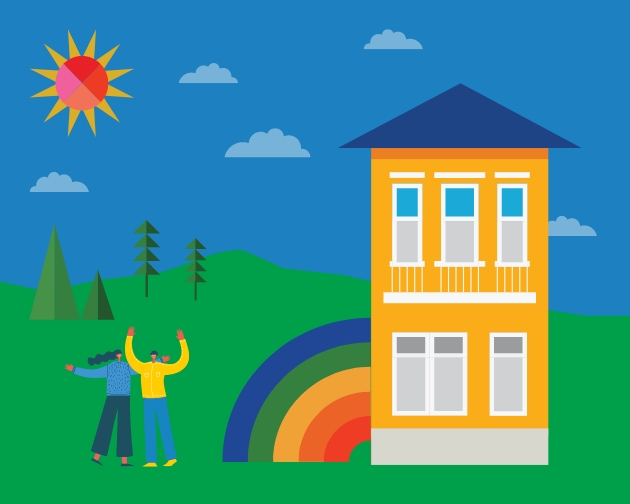Ritter Center Whole Person Care Case Manager Jennifer Escobar talks about how social workers have played a critical role in the pandemic and how she brings her experiences as a child and as a woman of color, and an indigenous woman, to help people in need.
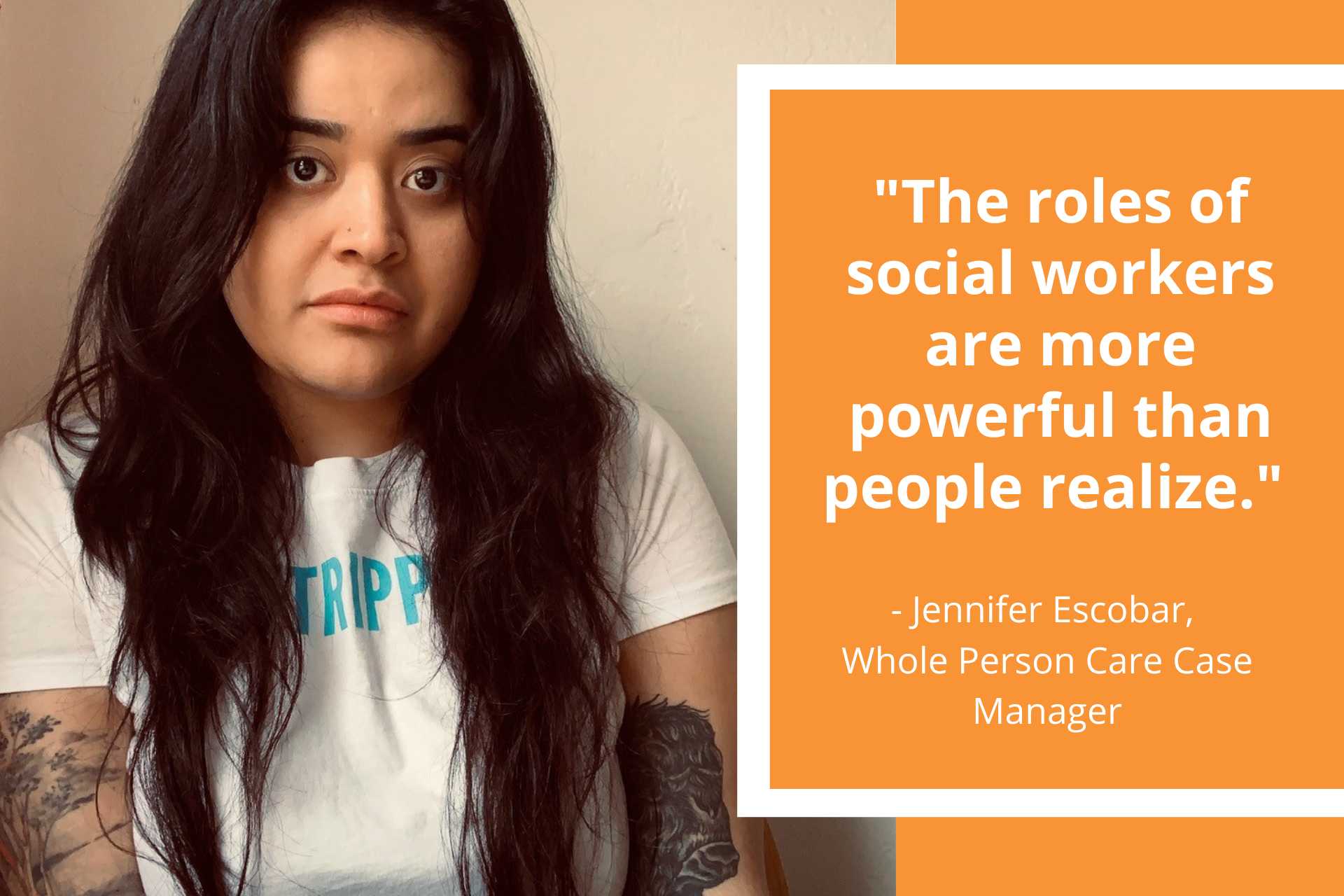
“The roles of social workers are more powerful than people realize!” – Jennifer Escobar
We recently chatted with Ritter Center Whole Person Care Case Manager Jennifer Escobar.
“I was the first generation of people born in the US in my family. My mom immigrated here from Guatemala and my dad from Mexico. He left when I was young, but my mom and grandma were the people that grounded my sister, my aunt and me. Although I grew up in Marin, I lived in unsafe conditions. We lived in units that were converted from a garage and our landlords didn’t allow us to celebrate our holidays because their religion was different than ours,” remembers Jennifer.
“These experiences gave me a unique lens to support Ritter Center clients. I know all too well from personal experience the profound link between housing and quality of life. Tenants don’t always know what is legal or illegal. We don’t want to get in trouble with the police, immigration or other authorities. My mom obtained status to be here legally, and acquired section 8 housing to stay in the area for the community and schools. We eventually found better housing units and moved around a few times. Now, where my mom currently lives, is a place she has been for 10 years so the relationship with the landlord made a big difference. She is a woman who runs her own business and is super understanding,” shares Jennifer.
“My life story also helps me to understand the power of the support of a mentor. I became part of the big brothers and sisters program in Marin County. Millie Oleson is still my big sister. To this very day she guides me. We met when I was 6. She helped to fill in the gaps that my mom couldn’t navigate. Going to college is a good example. My mom didn’t know the steps of the process, but was super supportive of my going. My mentor helped with scholarships, programs and applications,” remembers Jennifer.
Jennifer started working in social services in college at a program that helped incarcerated youth. Now she’s getting her MSW from Humboldt State. Social work is a field that pays huge dividends but not in the form of a large paycheck. People go into social work from the heart. Jennifer has particularly enjoyed the lens of studying social work through its origins in supporting indigenous communities.
“I can incorporate this thinking and these tools into my practice now. My career has been a journey and my own family history comes into play. I come from an indigenous background that we didn’t know about until my mom and I took a DNA test and I learned that I am 58 percent Native American. I used to think of myself as solely a Latina woman. I am re-thinking now to reconnecting to my indigenous self and this is a massive shift. I view Marin differently and how I network with people as well. I acknowledge I’m on indigenous land wherever I am as both a woman of color and an indigenous woman. I recognize how I benefit as a woman of color compared to an indigenous woman. There are laws still on the books today for Americans to rape and murder indigenous women without getting caught. If you are a US citizen and you step on native land reservations, you can commit a crime that the tribal government cannot try you simply because you are US citizen. But the reverse is horrifying: as an indigenous person on non-native land, you can be tried for a federal crime,” states Jennifer.
Now Jennifer is ensuring that in her everyday practice she brings an indigenous framework to it. There is not a lot of representation of indigenous people in general, and that representation is even lower in professional spaces globally and in Marin in leadership positions. To be aware of cultural backgrounds, she works to make sure that oppressed voices are heard and listened to in new and important ways.
In social work, there is a lot to talk about that does go unnoticed. It’s noting what’s missing here in the community. Diversity and representation are missing, and not only the color of skin or diverse backgrounds but also men. The field of social work is predominantly composed of women.
“There are things as a woman, whether in a crisis setting or out in the field, when working with a male client that I can’t identify with in terms of their needs. It’s such a compassionate field. It comes from the heart. A lot of feelings are involved. But the field is not necessarily attractive to men. We need more men to enter the profession of social work. At the same time, men and women both in the field and outside of the field, need to learn from each other. We can share how compassion and empathy come into play both as supports to our colleagues and to our clients.”
“The roles of social workers are more powerful than people realize: the field is very complex, and the public doesn’t necessarily understand the roles and weight that social work carries. Nurses and doctors are now seen differently because of COVID. But social workers have also played a critical role in the pandemic,” emphasizes Jennifer.
“At Ritter Center, our team went out every day to serve people experiencing homelessness. They worked tirelessly to work with communities, connect with individuals, and help our clients find shelter and food. Our society doesn’t always acknowledge social workers and the many hats they wear. Their ability to understand and navigate systems, and to try to dismantle and change policies within systems is critical, all while maintaining a therapeutic relationship with clients. It’s not an easy task.
“We are tired, but we still wake up every day to go outside and serve our communities straight from the heart. We don’t do it for the paycheck – which is small – we do it to be a genuine person who cares for the people that are unseen. There is so much work needing to be done so that services are accessible, instead of people already struggling trying to wade through some horribly complicated bureaucratic process to get their needs met,” urges Jennifer.
“Ritter Center began as a grassroots agency and we are constantly improving ourselves to meet the needs of our community. We are always changing in an organic way. We are responsive and working so that invisible people can be seen. As a woman, my basic instinct is to be compassionate. Somehow we haven’t lost touch with that instinct and in some ways, it is surprising how that trait hasn’t been destroyed by now. I treasure it. One of my foundations that I come from is built on the compassion to forge relationships with people. It is one of the things I love most about being a woman,” describes Jennifer.

